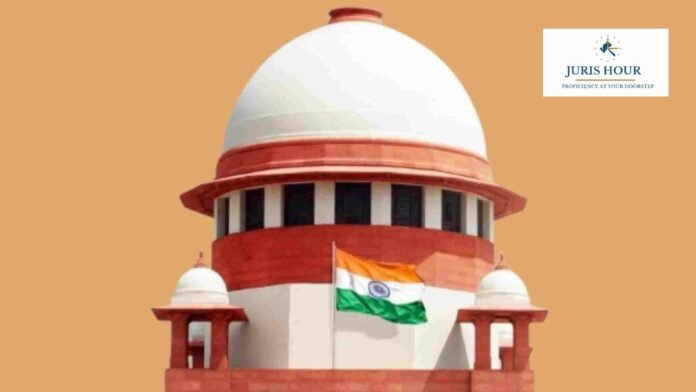The Supreme Court of India is set to examine a critical issue with wide-ranging implications for real estate and taxation: whether the assignment of leasehold rights in land should be treated as a “transfer of land” — which is exempt from Goods and Services Tax (GST) — or as a “supply of service” liable to GST.
A Bench of Justice Pankaj Mithal and Justice Prasanna B. Varale is hearing a petition filed by the Union of India, challenging a 2023 Gujarat High Court judgment that had held the assignment of leasehold rights in land does not attract GST. The Supreme Court’s decision is expected to provide long-awaited clarity on the tax treatment of long-term leases and assignments of immovable property.
Background of the Dispute
The dispute arises from transactions where industrial entities and developers acquired or assigned leasehold rights over government land for commercial purposes. The Revenue Department contended that the assignment or transfer of leasehold rights constitutes a supply of service under Section 7(1)(a) of the Central Goods and Services Tax Act, 2017, making it liable to GST.
However, the Gujarat High Court, in Shree Dipesh Anilkumar Naik v. Union of India, ruled that such assignments constitute a transfer of interest in land, which is outside the purview of GST. The High Court emphasized that a lease or assignment of land rights is a transaction involving immovable property, traditionally governed by stamp duty and registration laws, rather than indirect taxation.
Challenging this interpretation, the Centre approached the Supreme Court, arguing that leasehold rights granted for a fixed term do not amount to ownership, and therefore, the assignment should be taxed as a service.
During the preliminary hearing, Solicitor General Tushar Mehta, appearing for the Centre, argued that the transfer of leasehold rights involves the grant of permission to use land for a defined period, which constitutes commercial exploitation and falls under the ambit of supply under GST. He highlighted that such transactions generate economic value similar to renting or licensing, both of which are taxable services.
On the other hand, counsel for the respondents contended that the assignment transfers a bundle of rights, including possession and enjoyment, comparable to ownership. They emphasized that GST law explicitly exempts transactions in land and building under Schedule III of the CGST Act.
The Bench acknowledged the conflicting interpretations and observed that the issue carries significant fiscal and legal consequences. Justice Mithal remarked, “The distinction between a lease as a transfer of interest and as a taxable service must be examined in the context of constitutional allocation of taxing powers.”
If the Court sides with the Centre, such transactions could attract 18% GST, potentially raising costs for businesses and real estate projects. Conversely, upholding the Gujarat High Court’s view would offer substantial relief to industries and housing projects nationwide.
Read More: Madras High Court Strikes Down Departmental Action Against Retired Judicial Employee After 24 Years

